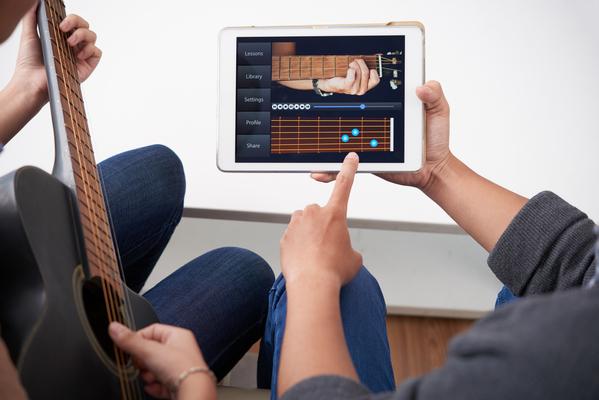Have you ever practiced guitar and didn’t seem to improve? Or if you did improve, it’s in very small amounts and it may hardly be noticeable. There can be multiple reasons behind this. One of the reasons is there seem to be problems with your guitar playing that you are not solving in your guitar practice sessions.
Here are some things to consider:
1– What are your problems in your playing?
This may sound extremely obvious that you may wonder why I am even saying this, but believe it or not people practice guitar and don’t really know what is holding them back in their playing. It’s difficult to cure a disease you are not even aware is there. It’s nearly impossible to solve a problem in your playing if you are not even aware what it is. You need to be listening out for problems in your playing, know what to look for, and work on solving them one at a time. You can use your ear to try and hear any issues with your playing or you can focus on tension in your body. Maybe your technique is flawed in some way that is making it difficult for you to progress. Spotting this on your own will be difficult and take a long time if you are not advanced. It is for this reason that I recommend that you get a very knowledgeable guitar teacher to help you.
2– Does your playing sound bad at sometimes?
What does it mean to sound bad? Well if you play with distortion and you are playing a lick or a riff and there is that awful string noise from other strings, this sounds bad. Listening for this can be beneficial, if it sounds bad this is likely the issue. What causes string noise would be the next question. The answer to that is that the unplayed strings are ringing out because they haven’t been muted. You need to mute the strings you are not playing to avoid string noise. And no, palm muting is not how you do it.
3– Does it feel difficult to play sometimes?
There are 2 ways that it can be too difficult to play. The first way is that it hurts to play. This is usually caused by excess tension in your body if this happens frequently. The 2nd way is that it seems impossible to be able to get any better. If you get to a certain speed in your guitar playing and you seem to plateau there, this is a common example. This is caused by multiple things related to your technique in both your fretting hand and your picking hand and even other things that have nothing to do with your hands. It is likely, however, that the way you are playing in at least one of these hands is holding you back in some way. How many ways are there? That is beyond the scope of this article, in which case having a guitar teacher would be helpful to you. There are many other things to consider other than the 3 things above, which is why learning guitar by yourself is the long and hard way.
About the author: Jake Willmot has been playing guitar for nearly 12 years, his favourite music is metal, rock and has recently gotten into acoustic guitar playing. As well as playing guitar, he offers guitar lessons in Exmouth.

